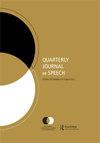告密者的流行和第四阶层的复兴
IF 1.3
2区 文学
Q2 COMMUNICATION
引用次数: 0
摘要
告密者和记者之间的历史伙伴关系产生了20世纪和21世纪一些最重要的新闻报道。然而,这种合作关系也经历了深刻的破裂,最明显的是在9/11袭击事件发生后,第四阶层(媒体)发布有关国家情报和政治权势人物的报道的方式发生了改变。虽然维基解密(WikiLeaks)和在线文档存储等信息可获取性方面的轰动发展,已经有意地改变了新闻采集活动和新闻发布方式,但本文转而关注更微妙的举报人言论活动,以及它在重新调整自由民主中第四权力地位方面的作用。接下来的分析是,一个弱小、脆弱、异质的群体是如何使用赞美和指责的修辞来实现对第四阶层在世界上的重要作用的愿景的。本文章由计算机程序翻译,如有差异,请以英文原文为准。
Whistleblower epideictic and the rejuvenation of the fourth estate
ABSTRACT The historical partnership between whistleblowers and journalists has produced some of the most consequential news stories of the 20th and 21st centuries. However, this partnership has also experienced deep ruptures, most notably after the attacks on 9/11 that reordered the fourth estate’s (the press) approach to publishing stories on national intelligence and politically powerful figures. While sensational developments in information accessibility such as WikiLeaks and online document repositories have meaningfully changed the activity of newsgathering and how stories are published, this article instead looks to the more delicate activity of whistleblower rhetoric and its role in recalibrating the place of the fourth estate in a liberal democracy. What follows is an analysis of how a small, vulnerable, and otherwise heterogeneous group uses a rhetoric of praise and blame to achieve a vision of the fourth estate’s essential role in the world.
求助全文
通过发布文献求助,成功后即可免费获取论文全文。
去求助
来源期刊

Quarterly Journal of Speech
COMMUNICATION-
CiteScore
1.80
自引率
36.40%
发文量
39
期刊介绍:
The Quarterly Journal of Speech (QJS) publishes articles and book reviews of interest to those who take a rhetorical perspective on the texts, discourses, and cultural practices by which public beliefs and identities are constituted, empowered, and enacted. Rhetorical scholarship now cuts across many different intellectual, disciplinary, and political vectors, and QJS seeks to honor and address the interanimating effects of such differences. No single project, whether modern or postmodern in its orientation, or local, national, or global in its scope, can suffice as the sole locus of rhetorical practice, knowledge and understanding.
 求助内容:
求助内容: 应助结果提醒方式:
应助结果提醒方式:


